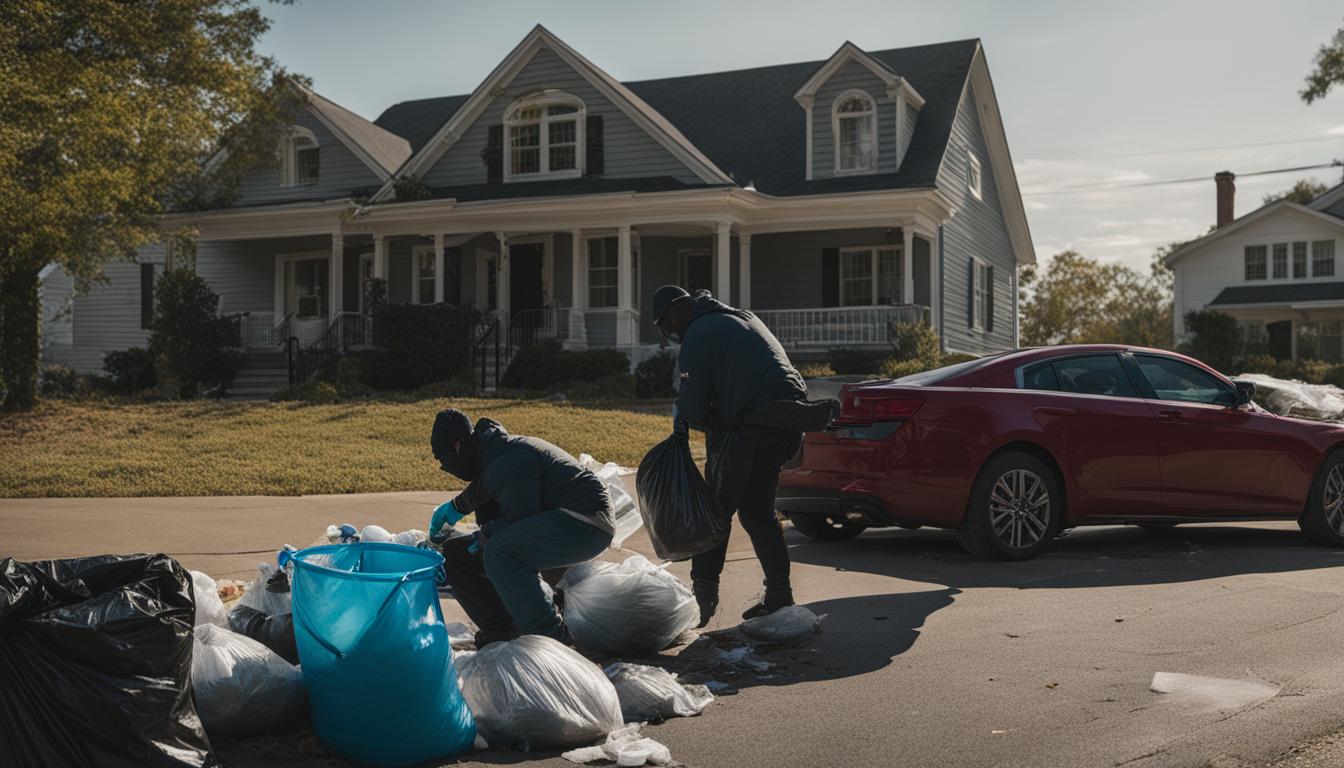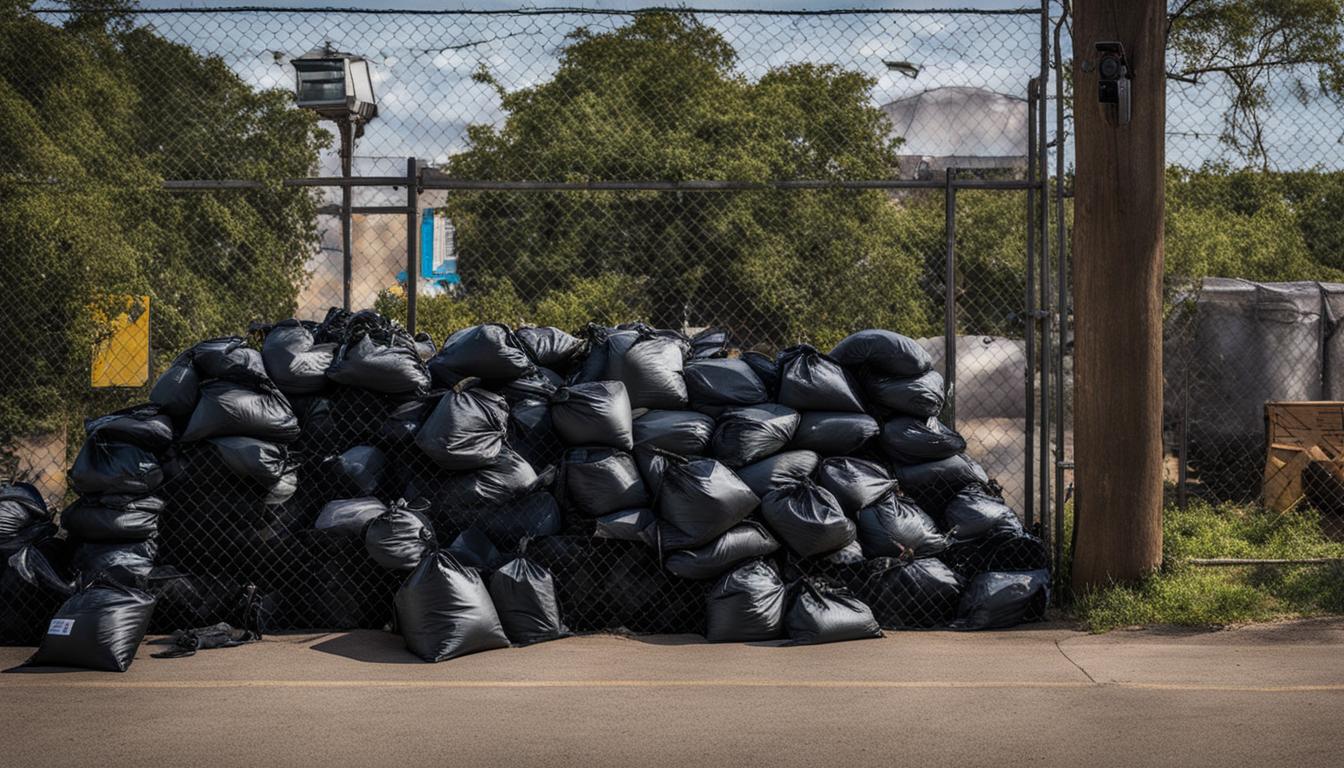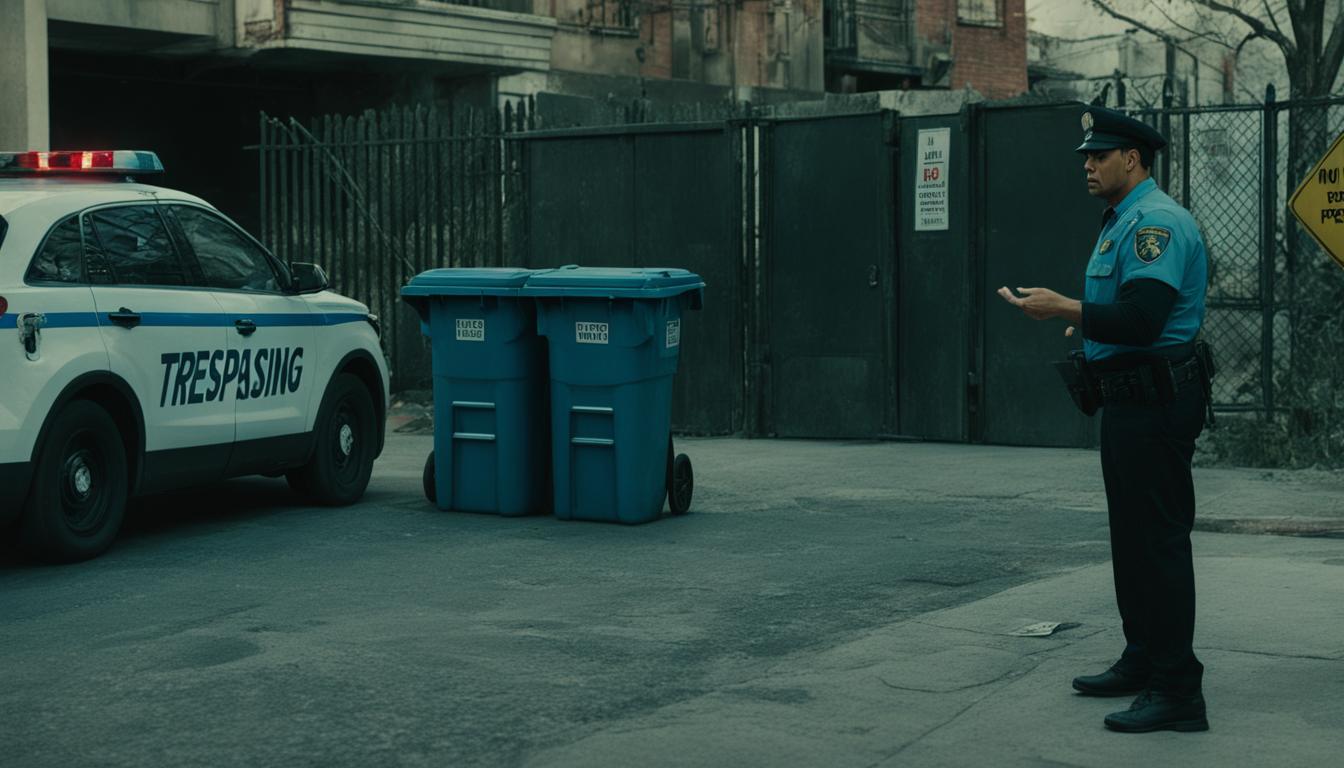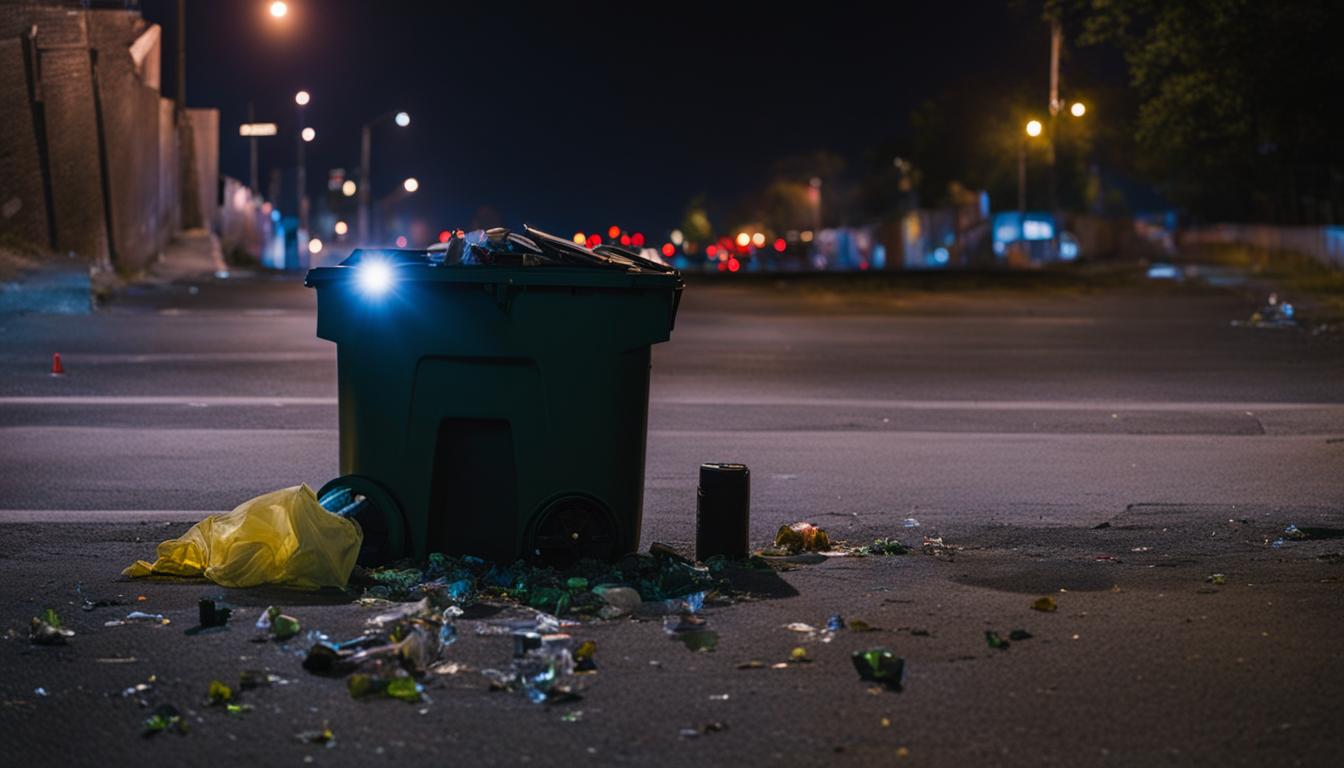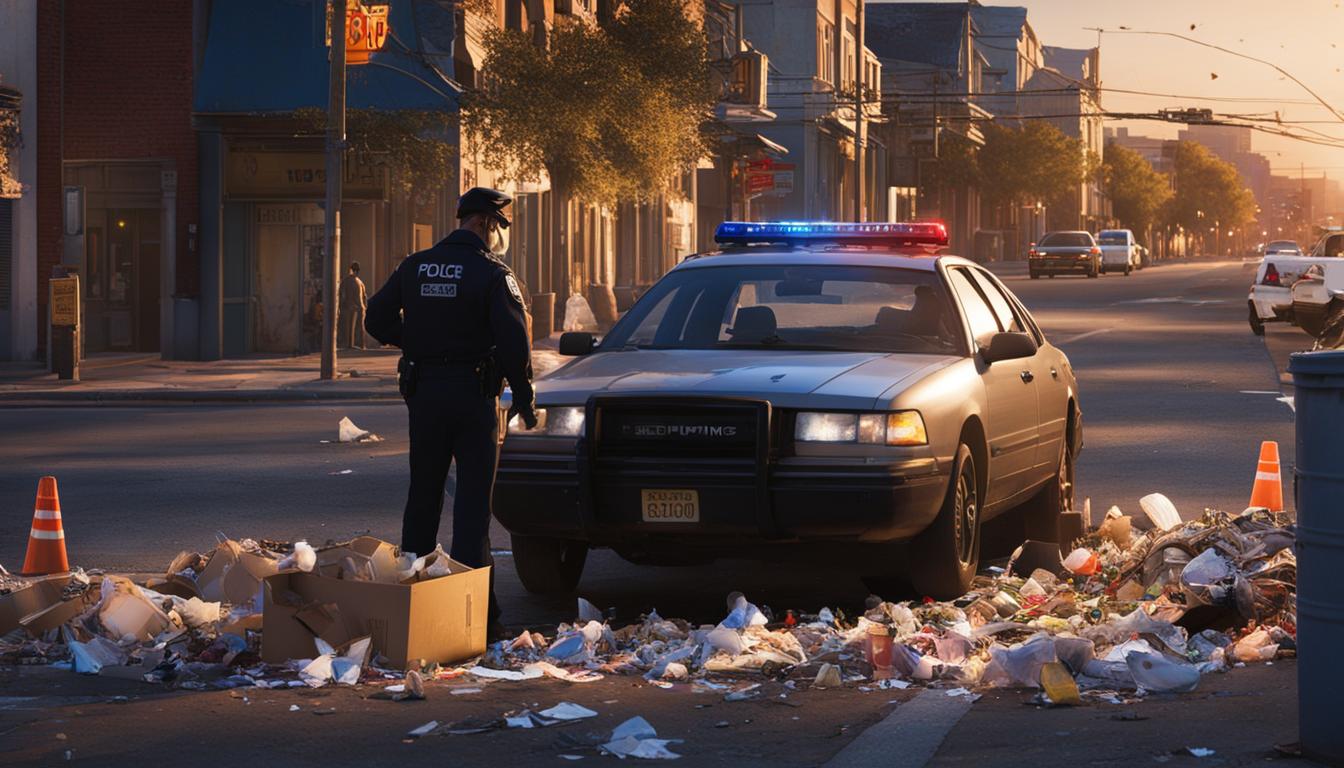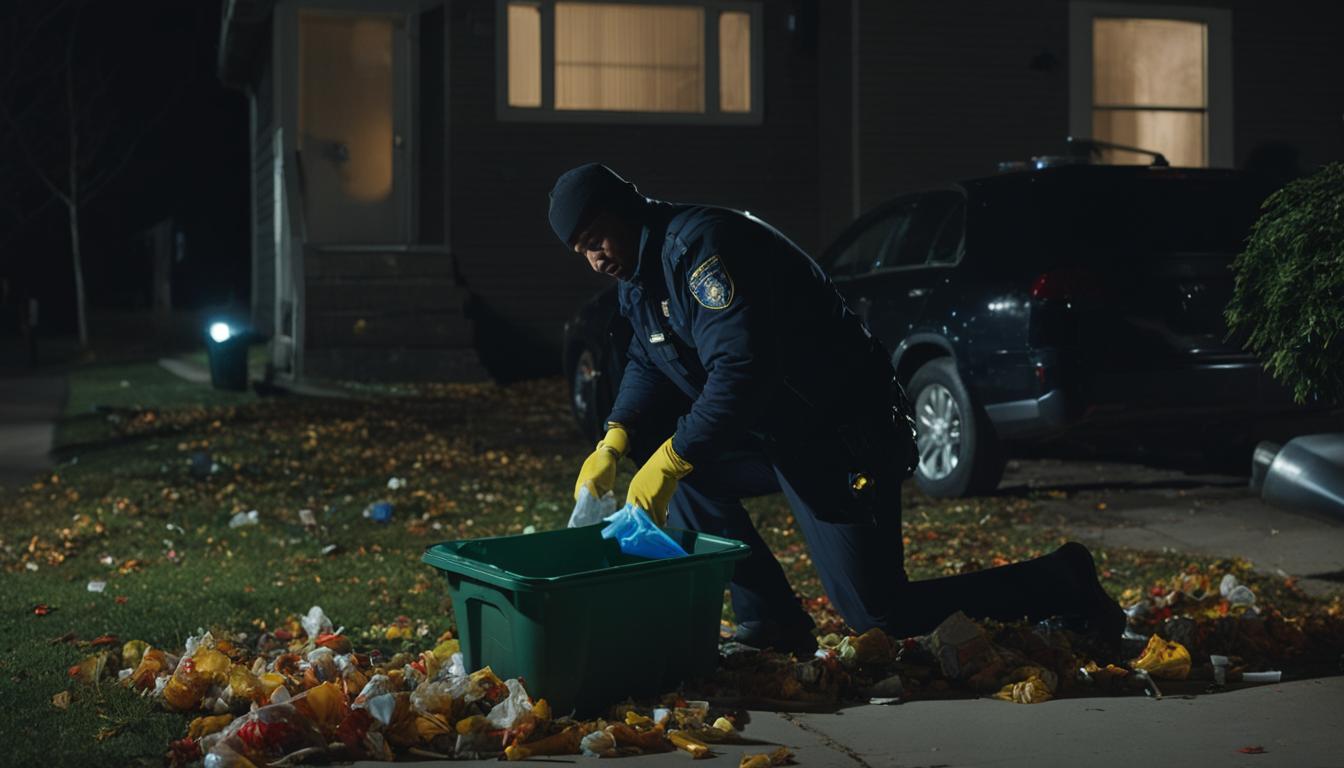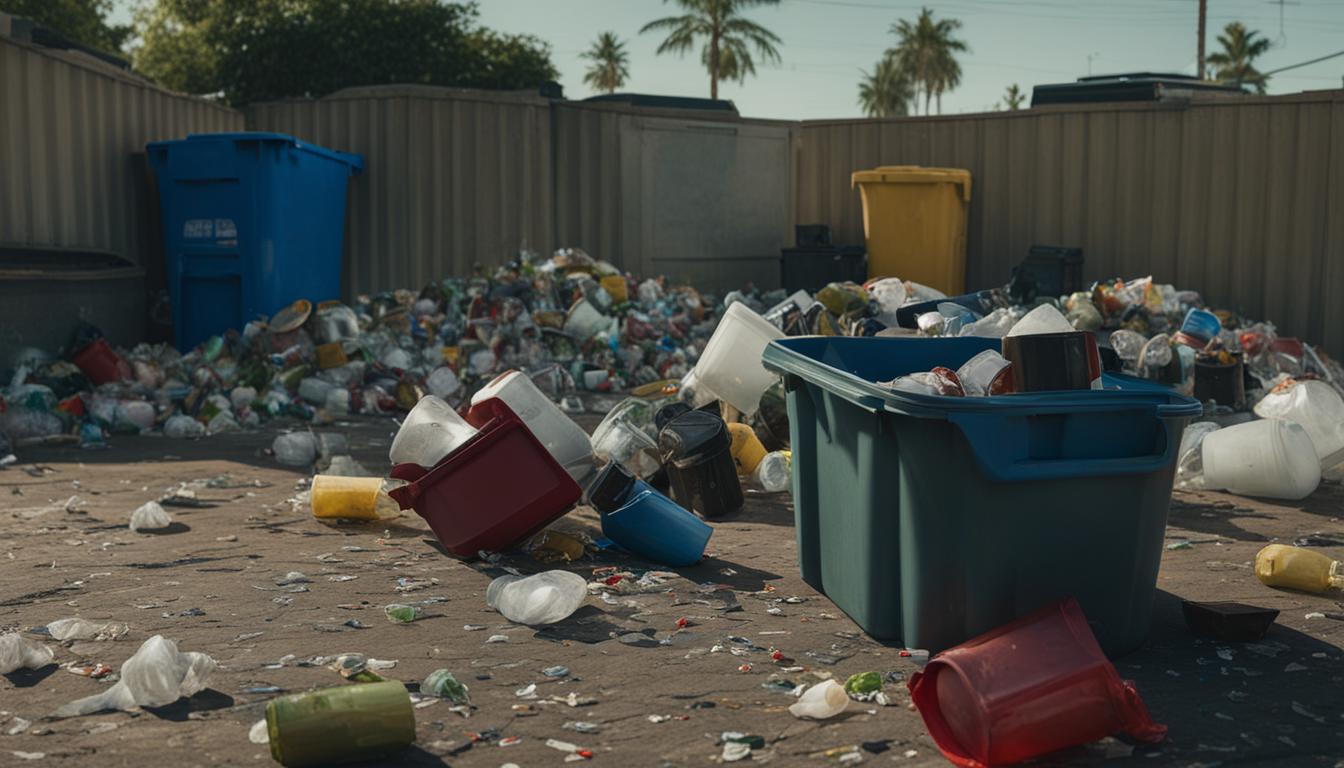Disclosure: This Post Contains Affiliate Links; We earn a commission on purchases.
Trash diving, also known as dumpster diving or trash picking, is a practice that involves searching through discarded materials to find useful or valuable items. Many people wonder about the legality and privacy implications of this activity, especially in North Carolina. Let’s explore the laws and regulations surrounding trash diving in the state.
Key Takeaways:
- Trash diving is not explicitly illegal in North Carolina.
- The U.S. Supreme Court decision in California vs Greenwood established that garbage left in the ‘outside curtilage’ has no reasonable expectation of privacy.
- While there are no specific trash privacy laws in North Carolina, local trespassing laws and regulations should be considered.
- Dumpster diving itself may not be illegal, but entering private property without permission or accessing locked dumpsters can lead to legal consequences.
- Trash diving can expose personal information, making it important to be cautious about the discarded materials and aware of potential risks.
Privacy Rights for Trash in North Carolina
When it comes to privacy rights for trash in North Carolina, the U.S. Supreme Court decision in California vs Greenwood plays a significant role. According to the ruling, when individuals place their trash by the curb, it is considered public domain and does not have a reasonable expectation of privacy. Hence, they have no legal protection against others going through their trash.
North Carolina does not have specific laws regarding the privacy of trash. However, it is crucial to take into account local trespassing laws and regulations, as well as potential legal consequences for criminal acts committed during the act of going through abandoned trash or trespassing on private property.
In summary, while North Carolina lacks specific legislation on privacy rights for trash, individuals should be mindful of their local jurisdiction’s rules and regulations concerning trespassing in order to protect their privacy.
The Impact of Trash Diving on Personal Privacy
Trash diving, though not explicitly illegal in North Carolina, can have significant legal implications and pose a threat to personal privacy. When individuals rummage through discarded materials, they risk exposing a wealth of private information that can be used against them. Items like empty pizza boxes, discarded mail, utility bills, credit card and bank statements, and shopping receipts can reveal personal habits, financial details, and even daily movements.
While law enforcement can legally search through trash without a warrant to find evidence of a crime, private investigators hired in civil, insurance, divorce, and custody cases can also utilize discarded items as evidence. This means that even if you’re not involved in criminal activity, your discarded trash can still be scrutinized by legal entities and used against you.
Trash diving can potentially expose a tremendous amount of private information about a person. Discarded materials such as empty pizza boxes, discarded mail, utility bills, credit card and bank statements, and shopping receipts can reveal personal habits, financial details, and even daily movements.
It’s crucial to be cautious and aware of the risks associated with trash diving. While individuals may think that their trash is no longer their concern once it’s on the curb, it can be accessed by individuals with malicious intent, such as thieves, stalkers, and identity thieves. This highlights the importance of safeguarding personal information, even in seemingly insignificant materials.
To provide a visual representation of the potential risks and legal implications of trash diving, refer to the table below:
| Implications | Reasons |
|---|---|
| Exposure of personal habits | Discarded items can reveal lifestyle choices, dietary preferences, and recreational activities. |
| Financial vulnerability | Trash can contain bank statements, credit card bills, and other financial documents that can expose sensitive financial details. |
| Identity theft | Personal information, such as names, addresses, and social security numbers, can be found in discarded documents, making individuals vulnerable to identity theft. |
| Legal repercussions | Individuals going through trash without permission may face legal consequences, especially if they commit a crime during the act or trespass on private property. |
It is important to note that while dumpster diving itself may not be explicitly illegal in North Carolina, it is essential to consider local trespassing laws and regulations. Entering private property without permission or accessing locked dumpsters is not only a violation but can also result in legal consequences.
To protect personal privacy and avoid any potential legal trouble, individuals should exercise caution when disposing of sensitive documents, shred personal information before throwing it away, and consider digital alternatives when possible. Being aware of local regulations and good privacy practices can help ensure a safer and more secure environment for personal information.
Dumpster Diving Laws in North Carolina
While dumpster diving itself is not explicitly illegal in North Carolina, it is important to be aware of local trespassing laws and regulations. Engaging in dumpster diving without permission can have legal consequences, particularly when it involves entering private property or accessing locked dumpsters. Taking items from dumpsters can also potentially result in charges of theft if those items are considered someone else’s property. As such, it is crucial to always respect private property rights and exercise caution when exploring dumpsters, especially on commercial premises.
Although dumpster diving may be seen as a way to find discarded treasures or reduce waste, it’s essential to be mindful of both the legality and potential risks associated with this activity. Remaining compliant with local laws and regulations ensures a positive experience while avoiding any legal issues that may arise.
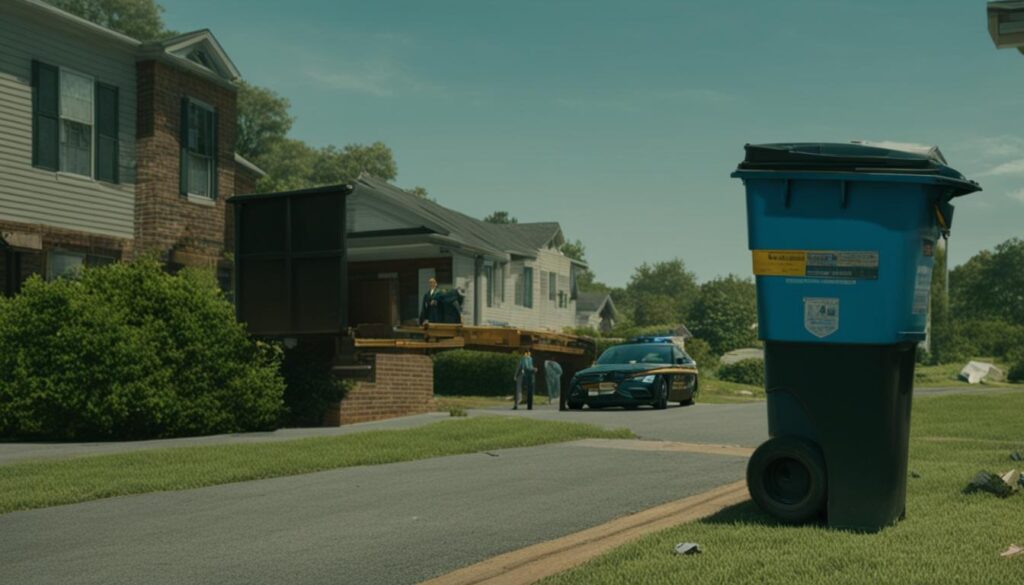
- Be aware of local trespassing laws and regulations.
- Do not enter private property without permission.
- Avoid accessing locked dumpsters.
- Do not take items from dumpsters that do not belong to you.
- Respect private property rights and exercise caution when exploring dumpsters on commercial premises.
Quota
While dumpster diving may be legal in North Carolina, it is necessary to respect the rights of property owners and ensure compliance with local regulations. By doing so, individuals can engage in dumpster diving responsibly and avoid any legal consequences.
Conclusion
After examining the regulations and legal implications surrounding dumpster diving and trash inspection in North Carolina, it is clear that there are no specific laws that make the act of going through someone’s trash illegal. However, individuals should be mindful of local trespassing laws and regulations, as entering private property without permission or accessing locked dumpsters can lead to legal consequences.
While trash left on the curb may not have legal protection, it is important to understand that committing a crime during the act of going through abandoned trash or trespassing can result in warnings or arrests. Furthermore, dumpster diving can potentially expose personal and sensitive information, highlighting the need for caution and discretion when engaging in this activity.
To ensure a positive and legal experience while dumpster diving, it is crucial to respect private property rights and familiarize yourself with local ordinances. By exercising discretion and being mindful of the materials discarded, individuals can minimize the risks associated with trash diving while still engaging in this activity in accordance with the law.
Source Links
- https://residentnews.net/2020/04/02/is-it-legal-for-someone-to-go-through-your-trash/
- https://nccriminallaw.sog.unc.edu/that-probable-cause-is-garbage/
- https://bizarrehobby.com/north-carolina-dumpster-diving/

Subscribe to Our Newsletter

